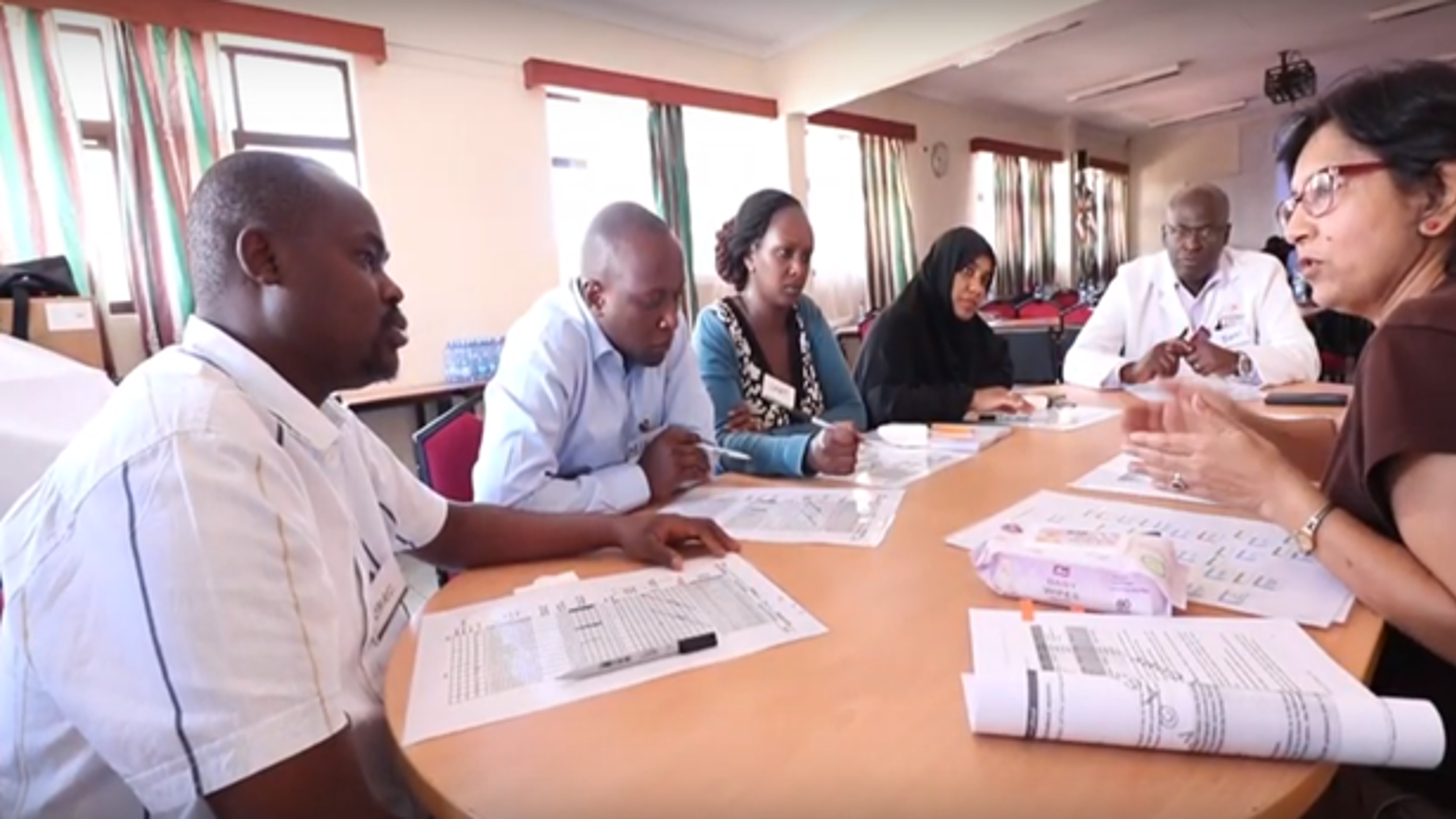
Sobhy et al 2019 reported disproportionately high maternal and perinatal deaths following caesarean section (CS) in low- and middle-income countries (LMIC), this was similar to findings in the first Kenya Confidential Enquiry into Maternal Deaths, where we reported that 37% of women dying in facilities were delivered by CS. Poor decision making and unsafe surgical environments were significant risk factors for death associated with CS.
In our longitudinal multi-country study to assess the knowledge/skills retention of maternity care workers after training in Emergency Obstetric Care (EmOC), we reported significant variance in the pre-training scores for midwives and clinical officers between countries. This finding raised concerns on the quality of training of maternity care providers and confirm the urgent need for improved training.
To address this issue, we have developed an intensive multidisciplinary training course targeting obstetric surgical and anaesthetic providers. The hands-on, evidence-based training covers preoperative, intraoperative and postoperative care and addresses issues including appropriate selection of patients requiring operative delivery, triage and prioritisation on busy labour wards, preparation for surgery, safe theatre procedures, in-depth surgical skills for assisted vaginal delivery (AVD) and both straightforward and complex caesarean sections, prevention, detection and management of post-caesarean haemorrhage, third and fourth-degree tear repair and post-operative care. There is an emphasis on improving communication skills between staff and patients, obtaining informed consent and post-operative counselling, in addition to enhanced team working using the WHO safe surgical checklist, and audit of practice. A key feature is the introduction of a validated obstetric early warning scoring chart to improve the timely detection of post-operative complications. Following a pilot in Cambodia, the course has been delivered at selected sites in Nigeria and Kenya. After training, participants demonstrated improved knowledge scores, particularly in the AVD (Kenya: n= 17, 15.8% CI: 10.5, 21.1, Nigeria: n=42, 17.3% CI: 14.7; 19.9) and CS (Kenya: n=18, 14.3% CI: 11.1, 17.6, Nigeria: n=35, 21% CI: 18.5, 23.4) modules. Individual and team action plans developed at the end of the training included the implementation of the obstetric early warning scoring chart, the use of the WHO safe surgical checklist and improved communications with patients. The training sessions valued most highly by participants related to hand-on sessions demonstrating surgical techniques for difficult CS, AVD and obstetric anal sphincter tear repairs. More experienced medical staff will be supported in providing on-going mentorship of trainees.
Reducing obstetric surgical related mortality/morbidity is complex but targeted educational interventions and curricula revision aimed at improving the skills and care delivered by staff before, during and after surgery, are fundamental to improving patient safety and saving lives, complimented by robust evidence on the effectiveness of educational interventions.
Watch our short film: An introduction to LSTM's Comprehensive Obstetric and Newborn Care Course. Filmed in Kenya.